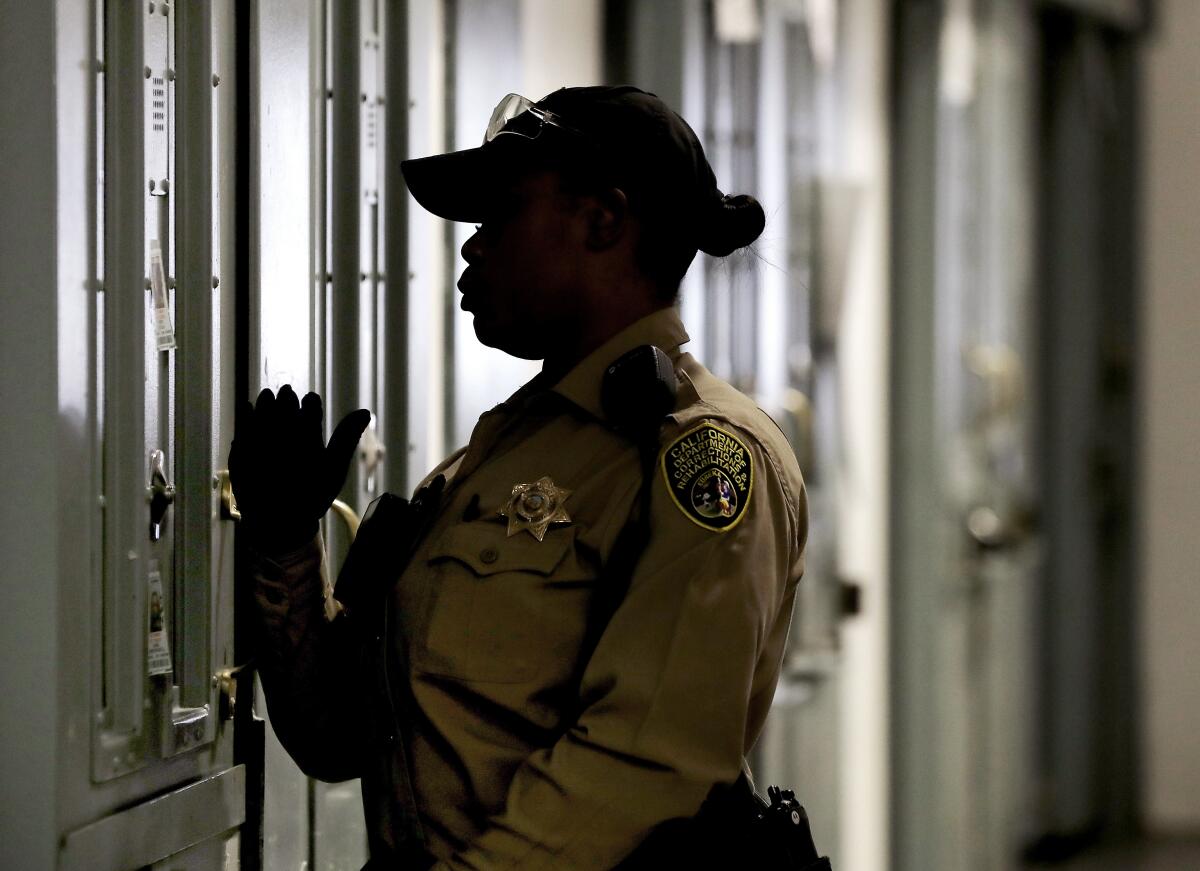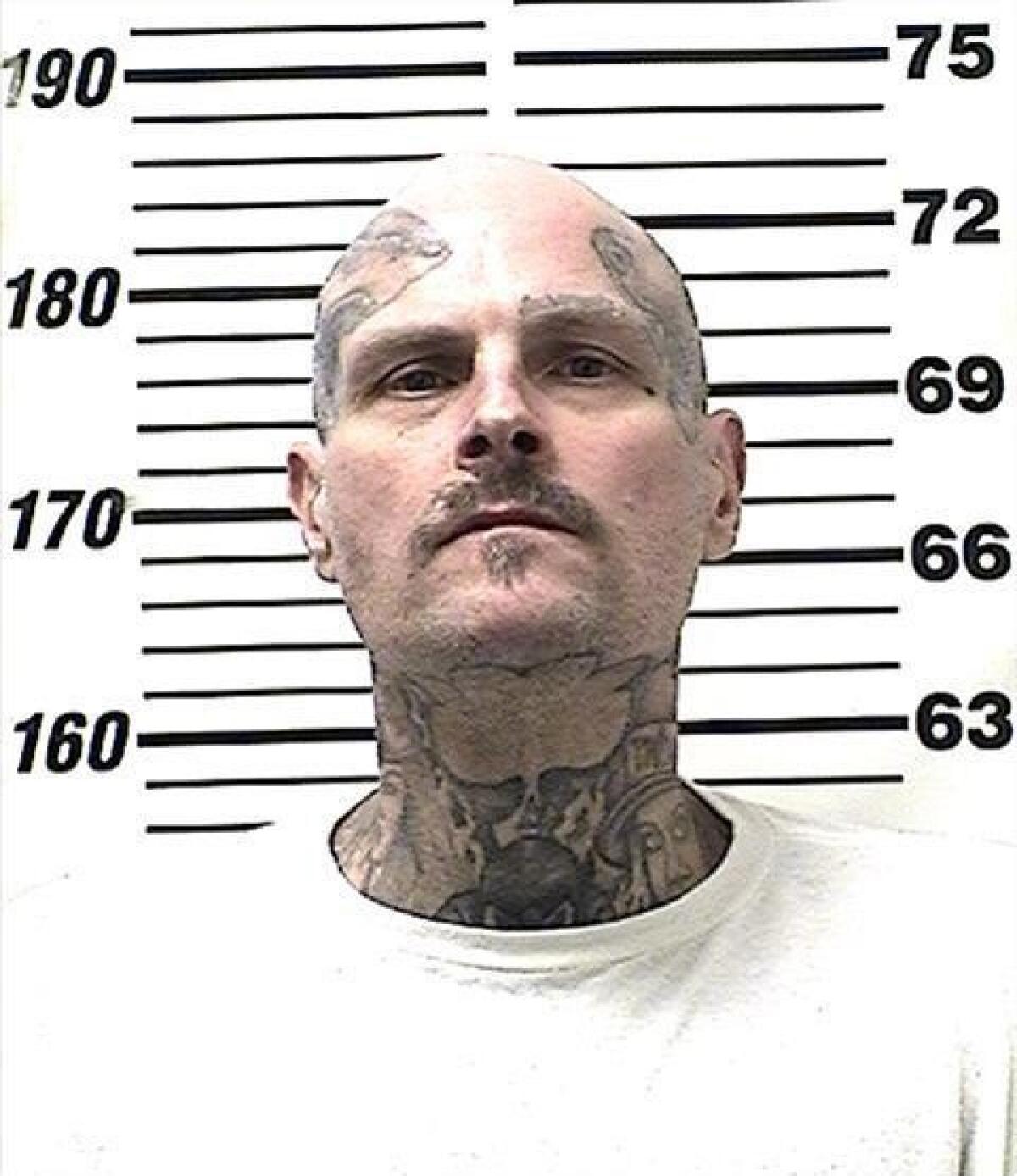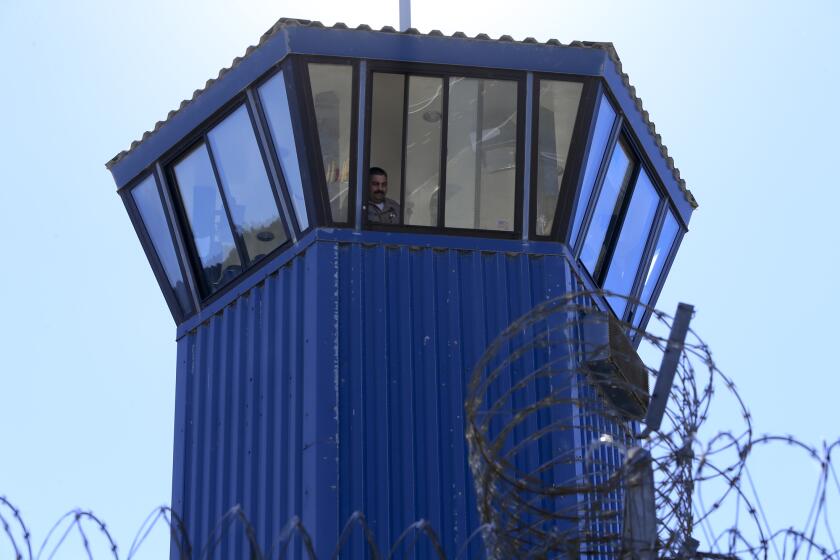Aryan Brotherhood gang member says feds violated plea deal. He now wants a new trial

- Share via
The agreement seemed straightforward: Brant Daniel, a member of the Aryan Brotherhood prison gang, agreed to plead guilty to murder and, in exchange, prosecutors would see to it that he served time in federal prison.
But Daniel, 50, also known as “Two Scoops,” said prosecutors didn’t uphold their end of the bargain, leaving him to serve time in a Sacramento state prison for the past seven months.
Last week he filed a motion requesting the U.S. District Court overturn his sentencing, reinstate his not guilty plea and set the case for trial.

“The prosecutor’s agreements in the plea agreement, and his assurances in court that had been relayed to my attorneys, are the reasons I pled guilty — that is, to be transferred to federal prison,” he wrote in his motion.
Daniel’s motion does not explain why he was adamant about being incarcerated in federal prison. His attorney John Paul Balazs declined to comment.
One possible explanation for why Daniel wants a new trial is included in a November 2023 court document sent to his attorney and others: a small, handwritten note suggesting the Aryan Brotherhood wants to kill Daniel.
A spokesperson for the U.S. Department of Justice could not immediately be reached for comment.
The California Department of Corrections and Rehabilitation said in a statement that “because of the safety and security issues involved in this case, CDCR is unable to provide further details at this time.”
The plea agreement stems from a long-running investigation into racketeering, drug trafficking and murders inside and outside of California prisons by more than a dozen members of the Aryan Brotherhood. Among those who were indicted in the 2019 case was Daniel.
In December, he was sentenced to life in federal prison after he agreed to a plea deal in which he admitted to murdering an inmate at Salinas Valley Prison on Oct. 29, 2016.
“In particular, Daniel admitted that he committed the murder because the victim failed to carry out a hit assigned by an Aryan Brotherhood member and then lost valuable drugs belonging to Daniel and, by extension, the Aryan Brotherhood,” federal prosecutors said at the time. “In his plea, Daniel admitted that he willfully, deliberately, and with premeditation, murdered the victim in order to maintain his status within the Aryan Brotherhood.”
At the December hearing, when the plea agreement was finalized, Assistant U.S. Atty. Jason Hitt, one of three federal prosecutors on the case, told the federal judge that the government had agreed to remove a racketeering conspiracy charge against Daniel and would request that he be transferred from state prison to federal prison, according to court records.
Transcripts submitted by Daniel with his motion on July 10 show discussions among his attorneys, federal prosecutors and a probation officer over the plea agreement.
According to the transcripts, Daniel agreed to the terms, even as U.S. District Judge Kimberly J. Mueller informed him that the transfer to federal prison was not guaranteed.
Mueller also read an email she received from Dominic Ayott, deputy regional counsel for the Federal Bureau of Prisons, clarifying that such transfers were at the discretion of the two prison agencies and that the court lacked authority to order transfers.
“I don’t know how this has been worked out so far, but this is not something the Bureau of Prisons agrees to and I do not believe the U.S. attorney’s office or a local prosecutor can do this either,” Mueller said. “Typically, any such shift is at the request of the California Department of Corrections, and it’s ultimately decided by the deputy attorney general.”
Hitt, according to the transcripts, told the judge he was aware of the bureau’s stance.
“The regional counsel’s position is well known to me,” he said. “It’s one that I’ve discussed with him many times. Understand that I’ve taken steps that I believe will be successful.”
More to Read
Sign up for Essential California
The most important California stories and recommendations in your inbox every morning.
You may occasionally receive promotional content from the Los Angeles Times.











